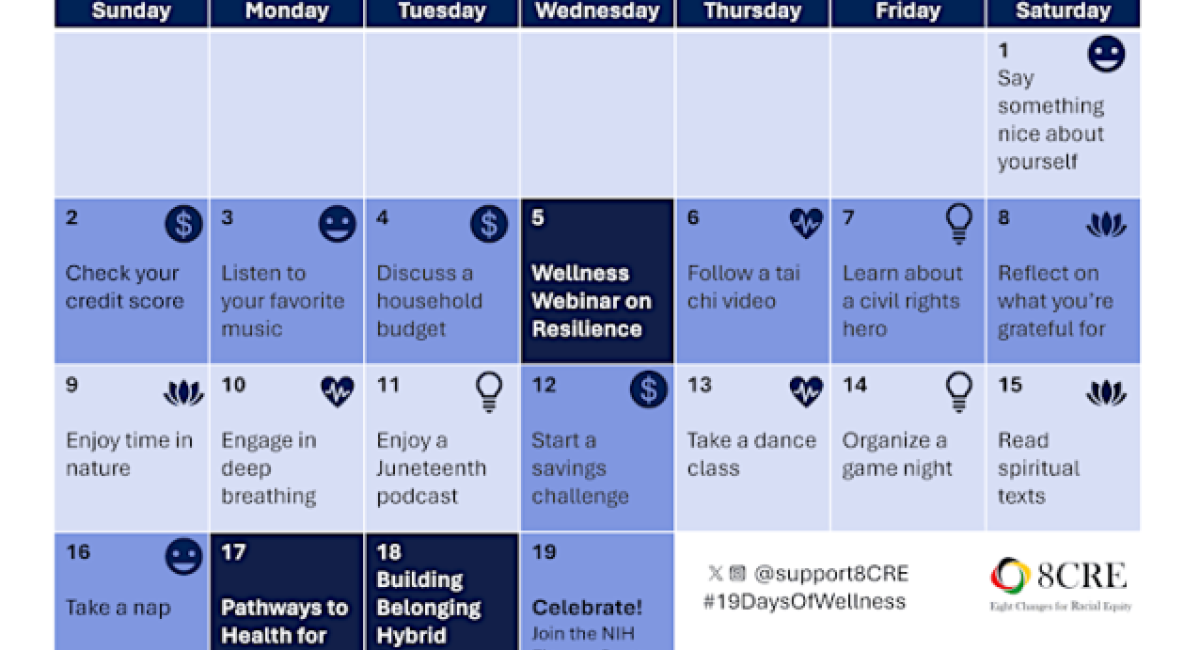The holidays are approaching and believe it or not, this is a great time to reach out to your network. The holiday season and an upcoming new year are the perfect excuse to reach out and extend greetings and updates. One of the most common questions about networking is “How can I effectively maintain a connection?” Most people know the importance of keeping the lines of communication open and warm; however, many lament the fact that it can feel awkward, and they don’t know exactly what to say.
How to Take Advantage of the Holidays
Writing Personal and Research Statements for Grad School
If you are applying to graduate programs, we highly encourage you to watch this video from OITE Director, Dr. Sharon Milgram. In this talk, she details many aspects to help you draft a compelling and successful statement.
Resilience: Understanding and Communicating Your Needs in the Workplace
Post Written By: Adeline Kerviel, PhD, Detailee at OITE
The third unit* of the OITE workshop “Becoming a resilient scientist”, presented by Dr. Sharon Milgram, focused on self-advocacy and assertiveness. She shared the idea that “Assertiveness is a learned skill built on the foundation of resilience”.
Meet & Greet + Trick or Treat
Wondering who is behind this blog? Or what the OITE does?
Stop by TODAY, Monday, October 31st (Halloween). Candy will be available at all NIH campuses-- Stop by, chat, grab some candy**, and enter our raffle for a FREE BOOK***! (Sponsored by the NIH OITE)
Bethesda: 12:30-1:15 PM, lawn outside of Building 1 and Building 2 (where the OITE office is located).
How to Consider Advice Thoughtfully
People tend to have a lot of varying opinions — on every topic possible. Just imagine how many different responses you could get when asking what flavor of ice cream you should order or what type of car you should buy. Everyone has their own unique preferences and often their distinct experiences have helped shape their opinions on these topics.
The same is true for advice about career and life choices.
Resilience – Being Proactive & Using Resources
Post Written By: Adeline Kerviel, PhD, Detailee at OITE
People know where to find resources for filing taxes, but what about help for taking care of mental health?
Saying No to Help Set Boundaries
Last week’s blog post imparted some Tips for Finding Balance. The most common piece of advice around finding that elusive work-life balance was setting proper boundaries – set designated time and space for your professional and personal time and even time for electronics like email/social media.
Tips for Finding Balance
Happy Postdoc Appreciation Week!
To recognize and raise awareness of the significant contributions that postdoctoral and clinical fellows make to the US scientific endeavor, the National Postdoc Association (NPA) has declared this week Postdoc Appreciation Week. The 2022 theme is Finding Balance. With this motto in mind, OITE has asked NIH alumni and friends to share their tips for current postdocs/fellows on “finding balance”.
Quick Tip: Your Job Search is a Three-Legged Stool
When you are job searching, it can be helpful to think of your search as a three-legged stool. The three legs stand for:
How to Plan Anything & Everything
The simplicity of the A-B-Z Framework makes it applicable to anything and everything. It can help you make plans for a work project, a professional or even a personal goal. So, when you have a goal in mind and you are thinking about making a plan, figure out these three things:
A. Where you are right now
B. Your next step
Z. Your end goal




